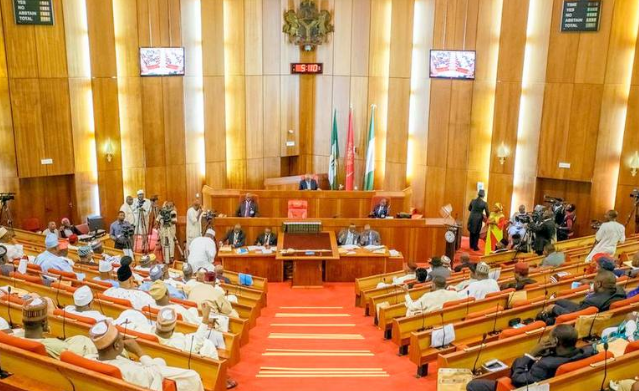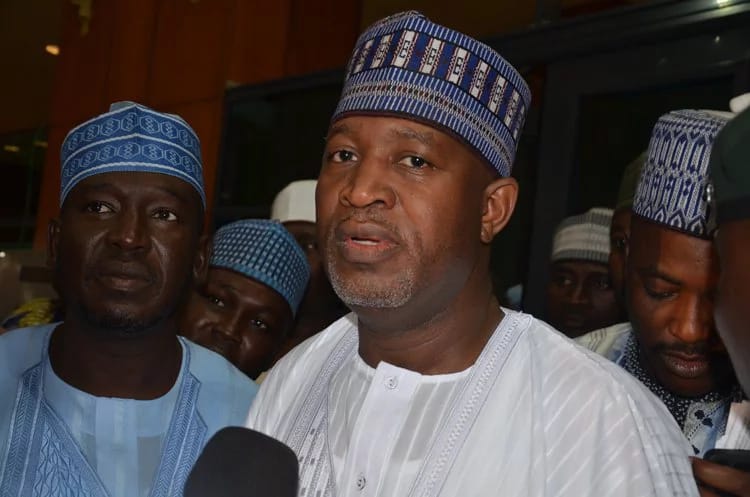Senate passes PIB II, amends NDDC Act, suspends sale of PHR

The Senate yesterday, passed through Second Reading, the remaining issues regarding the elusive, but highly critical Petroleum Industry Bill, PIB.
The passage of this important Bill, which has generated a lot of controversies following its long delay, may have laid to rest, at least for now, the doubts trailing it.
This is just as the red chamber condemned “non-transparent process” being adopted by the Ministry of Petroleum and the Nigerian National Petroleum Corporation, NNPC, to concession the Port-Harcourt Refinery to ENI/AGIP and OANDO.
The Senate, therefore resolved that the process be stopped for advertisement and open bidding.
The Senate also approved amendments of the Niger Delta Development Commission (NDDC), to clear certain ambiguities.
In the new amendment, “an indigene of an oil producing area” to be appointed into the NDDC Governing Board has been clarified to read “an indigene of an oil producing Local Government Area”.
The remaining piece meals of the PIB that passed their Second Reading in the Senate, yesterday, included: “A Bill for an Act to Establish a Fiscal Framework that encourages further investment in the Petroleum Industry whilst increasing accruable revenues to the Federal Government of Nigeria and for other connected matters; A Bill for an Act to provide for Framework relating to Petroleum Producing Host Community’s participation, cost and benefit sharing amongst the Government, Petroleum Exploration Companies and Petroleum Host Communities and for related matters.”
Also, the Upper Chamber of the National Assembly passed ‘A Bill for an Act to provide for administrative framework for the Petroleum Industry and for other connected matters.’
According to the Senate, the Host Community’s Bill, provides for Petroleum Host Community Associations (PHCA) “to be funded through a direct contribution from petroleum producing companies.”
There is also a provision for National Committee on Petroleum Host (NCPHC) Communities designed solely to be “a small advisory body, which provides support to the Petroleum Host Community Associations when required.”
The Senate resolved that the cost of Registration of the PHCA will be borne by relevant communities, while the running cost of the NCPHC will be deducted from the funds payable to the communities.
Also, as part of its resolution on Thursday, the Revenue Mobilization Allocation and Fiscal Commission, RMAFC, has been directed by the Senate to review the current Revenue Allocation formula to ‘reflect the current and changing economic realities’ of the country.
The directive by the Senate is contained in Thursday’s resolutions on a motion by Senator Muhammad Adamu Aliero (Kebbi Central) on the need for the RMAFC to discharge its constitutional functions under paragraph 32 of the third schedule to the Constitution.
The Senate also urged the Federal Government to table the proposed revenue collection formula before the National Assembly for deliberation and passage into law, just as it charged the commission to discharge its Constitutional duties and functions.
It noted that pursuant to paragraph 32 of the third schedule of the Constitution of the Federal Republic of Nigeria as Amended, the RMAFC was established to among other things review, from time to time the revenue allocation formula and principles in operation to endure conformity with changing realities, provided that any revenue formula which has been accepted by an Act of National Assembly shall remain in force for a period not more than five years from the date of the commencement of the Act.
The upper legislative chamber during debate on the motion observed that the present Revenue Allocation before the commencement of present democratic dispensation in 1999.
It stressed that there is no extant Act of the National Assembly accepting the present Revenue Allocation formula which means the formula in use now is unconstitutional.
The Lawmakers noted also that the constitution does not contemplate that a particular revenue formula is to be in force in perpetuity. It stressed the need for the formula to be reviewed every five years as provided by the Constitution.
“Senator Aliero had in the motion raised awareness to the fact that most of the States of the Federation are under the bailout of the Federal Government which runs into billions of Naira, and as a result of this bailout most of the States are deeply in debt and the fear is that successive state governments are going to inherit huge and insurmountable debts.”
The Senate expressed concern that unless the present formula is reviewed in favour of the States and Local Governments, real growth and development will continue to elude Nigeria.
However, the bills would be subjected to Public Hearings before their final passage by the National Assembly for the President’s assent.








